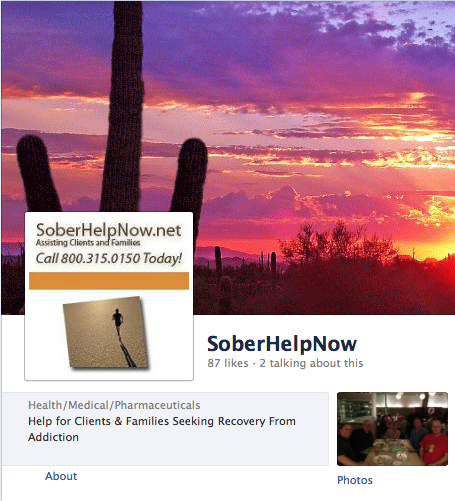Editor’s Note: E. Victoria Lee is a published author and spiritual teacher. In 2000, she wrote “Secrets in the Soul,” which is now available on Amazon.com. A fellow traveler, we are honored to have her guest blog on soberhelpnow.net.
Session #8 – Developing a Higher Belief System About ME (My Energy)
From Workbook on Healing the Inner Child/Self (Updated, © 2009)
Written by E. Victoria Lee, D.D., Author, Los Angeles (sobriety date 10/21/1981)
We have entered the High Holiday Season and I hope you each had a beautiful Thanksgiving. Thanksgiving for me means enjoying the company of friends and family without the annoying habits of having to do things I didn’t want to yesterday, i.e., cooking huge batches of food and having folks over that made my life sad/angry or dismayed at some of the actions or words expressed, often hurtful, because of someone’s need to rehash some past happening. As I’ve developed my spiritual base, I find it far easier to often “pass” on some invitations from family and friends just so I won’t be alone. So this session, let’s look at family dysfunction that can spread itself into other areas of one’s life.
Assignment: “Example of Dysfunctional Family Unit vs. Positive Functioning Family Unit”
What a Healthy Family Unit Looks like:
1. Everyone is of equal importance in each other’s lives, but with healthy sense of positive boundaries.
2. Children are close to parents, recognizing and respecting the parental generation gap, while adults exhibit respect for the child/adolescent/young adult.
3. Children experience positive role modelling in parents and other adult family members and their friends.
4. Each child/adolescent recognizes its positive worth in family.
**A. Examples of positive role modeling for means of:
1. Learning love and respect for self and others.
2. Learning how to receive directions/orders. In turn, finding appropriate means of giving directions/orders to others in and outside of family.
3. Learning it is okay to make mistakes and learn lessons from the mistakes, not having to incessantly repeat similar mistakes over and over.
4. Learning that flexibility is freedom – it is okay to change ones mind when it does not infringe on someone else’s life in a negative way.
5. Learning to make choices that work beneficially for all concerned based on the best choice in decision-making.
6. Learning to weigh and ask questions, coming up with balanced answers for enriching ones life.
**B. Examples of abusive behavior in dysfunctional families:
1. Physical abuse: incenstuous sexual interaction, non-family member sexual abuse/overtures, childhood/adolescent whippings/punching and other forms of
battering including verbal putdowns, bullying, being lied to repeatedly and failing to keep promises, demeaning verbal assaults.
2. Overt (blatant) abusive behavior (non-physical sexual abuse/intrusiveness): Voyeuristic (being peeked in on while dressing or disrobing; adult telling child “you don’t need to hide your body from me” although child is old enough to dress self in a private setting; disrespecting privacy by entering a room while child is dressing/disrobing, bathing, etc.; consistently disrobing or being nude in child’s presence.
3. Covert (veiled) abusive behavior (non-physical sexual abuse): Suggestive language (parent/other adult statement, “I’m your best girl/guy”; “When you grow up, someone is going to be very happy with the way you look and the way you feel”; “Gee if only I wasn’t your parent/relative/”Uncle”; “You’re closer to daddy than anybody else”; “I want you to always be with me.”
Assignment: It’s now time for your inner child to take a rightful place in the family of your being without throwing tantrums, running on fear of being abused or needing to be unduly recognized all the time. Look back at some of the things you disliked about your family nit as the “inner child” speaks out about what relationships and duties were like in childhood and a in next email to you) adolescence. Is it still the same today? List these items downward to the less likely affecting you in childhood and even today.
Simple Example: You always had to iron clothing for siblings or parents as your specific chore back then, so today you won’t even accept a million dollars to iron for anyone else (and sometimes not for yourself!).
Stop and Think:
1. Is there anyone with whom you maintain similar relationships in many ways like those from your childhood past?
2. As an adult, do you hold someone in high esteem or silently fear just like a past figure (parent, sibling, other relative or family friend) because this person treats you similarly positively or negatively just like back then?
3. Is there someone who “works” your last nerve and you don’t know why they affect you adversely? Who do they remind you of?
4. As an adult, have you seen someone or heard a voice which gave you the “willies” by reminding you of someone you loved or absolutely despised in your childhood/adolescence? What did the person bring to mind?
**NOTE: Write a short story about your life journey incorporating any revelations uncovered about yourself and your family dynamics. Give yourself the gift of awareness by sharing your story with a trusted insightful person/sponsor.
Next session, with the Holidays full upon us, take time to Pause to Refresh with 7-Ups continuing on the path of increasing deeper discovery of self and its awarenesses as we move toward the year 2013. I hope you will continue the work needed to further reclaim freedom and peace of mind.
 About E. Victoria Lee
About E. Victoria Lee
Speak Your Mind
You must be logged in to post a comment.